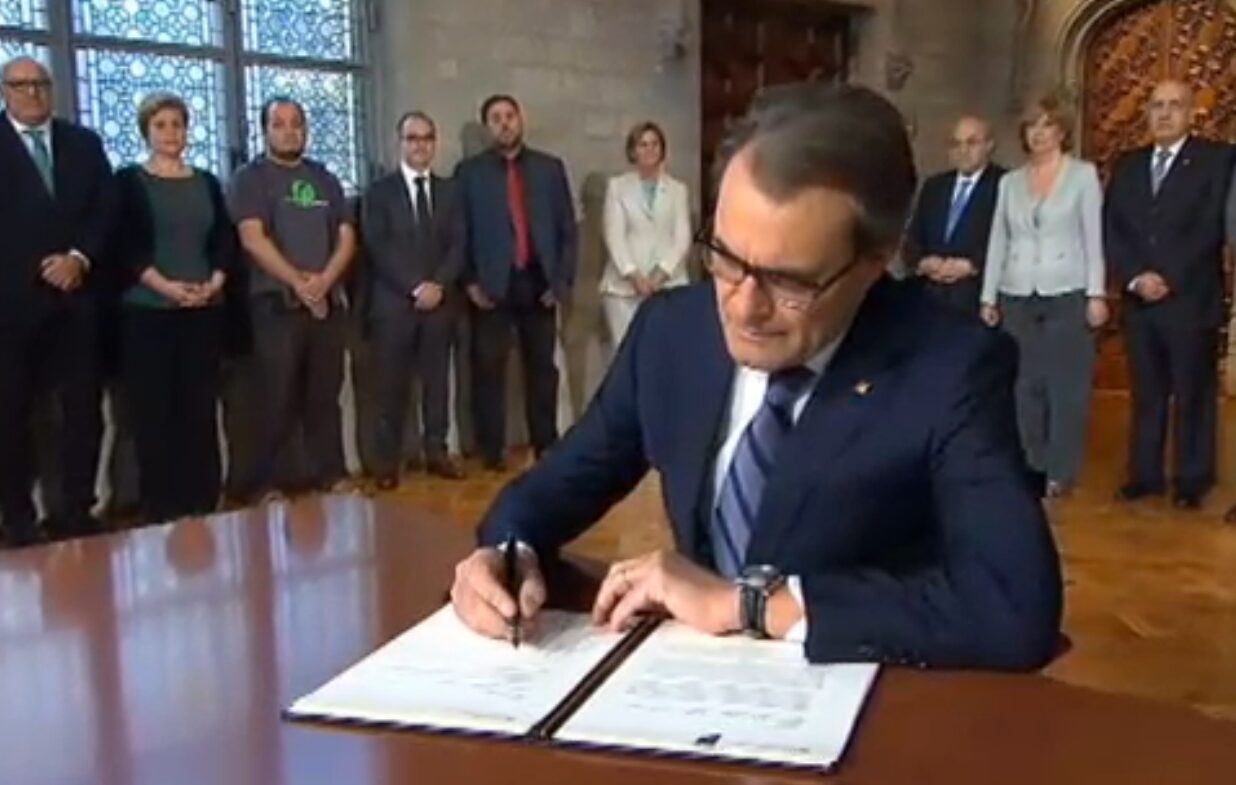27.09.2014 - 11:00
‘Today we embark on a path that will mark a before and after in the long history of Catalonia. And I trust it will come to a good end’, Artur Mas said in his speech following the decree to call (pdf) the consultation on 9 November. The president of the Government of Catalonia signed the decree in the Our Lady of Montserrat Hall of the Palau de la Generalitat, once the government secretary, Jordi Baiget, had read the main points of the decree. Prior to this, the Official Gazette of the Government of Catalonia had published the consultation law (pdf) passed by parliament on 19 September, intended to establish the setting for voting on 9 November. Immediately after signing, Mas addressed the citizens in an institutional declaration from the Gothic gallery, starting the 42-day countdown to the day of the consultation.
Mas highlighted the large social and political majorities that have enabled the legal framework paving the way to the call to consultation. He stressed the constitutional nature of the consultation law and asked for it to be respected.
The only absence among the groups supporting the consultation was ICV-EUiA, which preferred not to attend the call as it considered it an administrative act of the government.
The consulation vote would be putting a double question to a vote: ‘Do you want Catalonia to be a state?’ Voters who answer ‘yes’ to this question would then have the option of voting on another question: ‘Do you want this state to be independent?’
The coming days will be decisive in determining whether Catalans are given the chance to vote on 9 November on the matter of independence from Spain, a referendum that the Spanish government wants to prevent.
President Mas also gave a speech in English, which you can see in this video:
Artur Mas speech in English por vilawebtv
Here you can read the speech:
‘I would like to convey a message to the european leaders and the european people.
Catalonia, my country, is one of the oldest nations of Europe. Nowadays, it is a modern society composed of seven and a half million people, about 70% of them with a non-catalan origin.
As all the nations in the world, Catalonia has the right to decide its political future. This is exactly the message that broad majorities of the catalan people send to the world every year since 2012, by organising hudge peaceful demonstrations in the streets of Barcelona, our main town.
Two years ago, I called early elections. My purpose was to know how large the social majority in favour of the right of selfdetermination was. The turnout was the highest in three decades. The outcome was clear: more than two-thirds of the members of Parliament were in favour of the right to decide.
As a consequence of all that, today I called a consultation on November 9 to know the opinion of the catalan people above 16 about the question on selfdetermination. That question was agreed with the majority of the catalan political forces in December last year.
We stand for democracy, dialogue and peace. We believe that political issues must be resolved by negotiation and civilised attitudes. And we know that democracy is the most civilised way to resolve difficulties between nations. This is our will and our commitment.’



